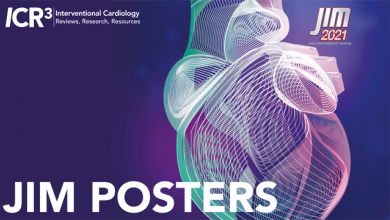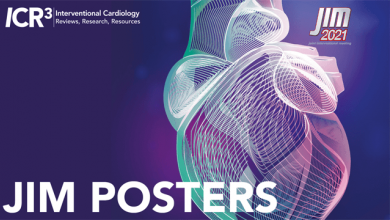Search results
Optimum Therapies for ST-Elevation Myocardial Infarction Managed with Primary Percutaneous Coronary…
Author(s):
Bruce R Brodie
Added:
3 years ago
Article
Author(s):
Robert J Applegate
Added:
3 years ago
Percutaneous Coronary Intervention for ST-elevation Myocardial Infarction
Achieving reperfusion in a timely fashion in patients with ST-elevation myocardial infarction (STEMI) has been established as an effective and life-saving treatment.1–4 This has usually been measured as door-to-balloon time with an established goal of 90 minutes as the time within which reperfusion should be achieved…
View more
Author(s):
Michael Tsang
,
Sanjit Jolly
Added:
3 years ago
Many advances have been made in the management of ST elevation myocardial infarction (STEMI) over the past three decades.1 This is owed to insight into role that thrombus has in the obstruction of the infarct-related artery (IRA) and the subsequent cascade of the myocardial ischaemia, cell oedema and myocardial necrosis. The institution of reperfusion therapy has revolutionised the care of…
View more
Author(s):
Henning Rud Andersen
,
Christian Juhl Terkelsen
Added:
3 years ago
In patients with ST-elevation myocardial infarction (STEMI), reperfusion can either be in the form of fibrinolysis or primary percutaneous coronary intervention (PCI). In recent years, several trials have proven the superiority of primary PCI compared with fibrinolysis,1-5 and it is estimated that primary PCI saves an extra 26 lives per 1,000 treated, when compared with fibrinolysis (Table 1).3…
View more
Author(s):
Krishnaraj S Rathod
,
Stephen M Hamshere
,
Tawfiq R Choudhury
,
et al
Added:
3 years ago
Primary percutaneous coronary intervention (PPCI) is the optimal treatment strategy for restoring coronary blood flow in the infarct related artery (IRA) and salvaging myocardium in patients with ST elevation myocardial infarction (STEMI).1,2 Despite this, PPCI fails to restore optimal myocardial perfusion in up to 40 % of patients despite restoring epicardial artery patency as evidenced by…
View more
Author(s):
Abhijeet Basoor
,
Gagan Randhawa
,
John F Cotant
,
et al
Added:
3 years ago
In the US, over the past 30 years, advances in cardiovascular care have resulted in a dramatic decline in mortality and morbidity associated with ST elevation myocardial infarction (STEMI) and non-STEMI.1,2 The overall incidence of coronary heart disease (CHD) has decreased over the last four decades.3
There are various reports about disparities in healthcare and the higher mortality among…
View more
Author(s):
David S Wald
,
Jonathan P Bestwick
Added:
3 years ago
The management of patients with acute ST-elevation myocardial infarction (STEMI) relies on restoring blood flow to the occluded infarct artery. Prompt percutaneous coronary intervention (PCI) and stenting of the stenosis causing the occlusion reduces the risk of cardiac death and recurrent infarction.1 In about half of patients,2 stenoses are identified in non-infarct arteries at the time of the…
View more
Author(s):
Emily Mae L Yap
,
Alexander A Tuazon
Added:
2 years ago
Author(s):
Emily Mae L Yap
,
Christopher A Macaraeg
,
Richard Ayuson
,
et al
Added:
2 years ago
MGuard Embolic Protection Stent
Author(s):
Ricardo Costa
,
Alexandre Abizaid
,
Jean Fajadet
,
et al
Added:
3 years ago
Article














